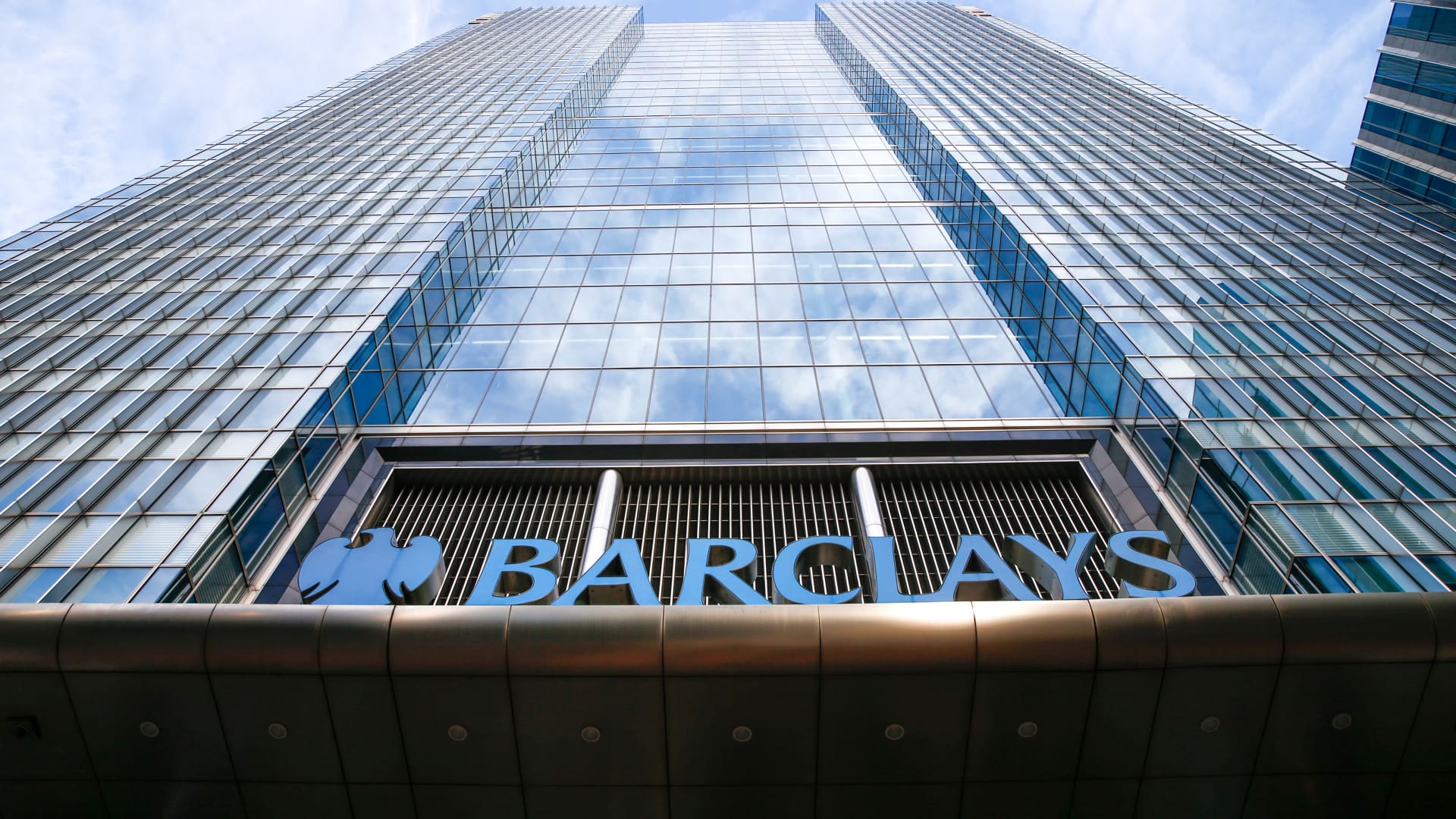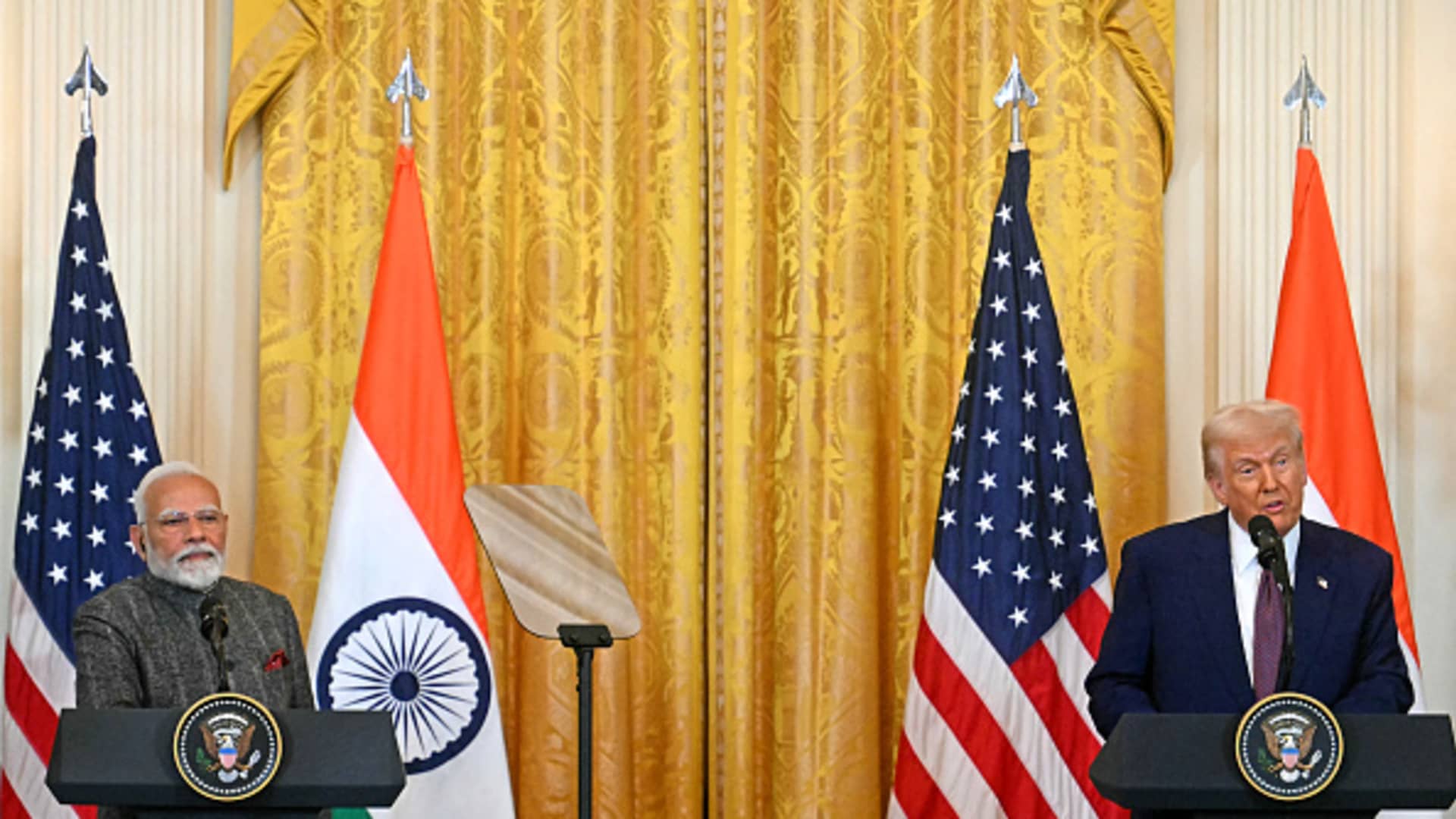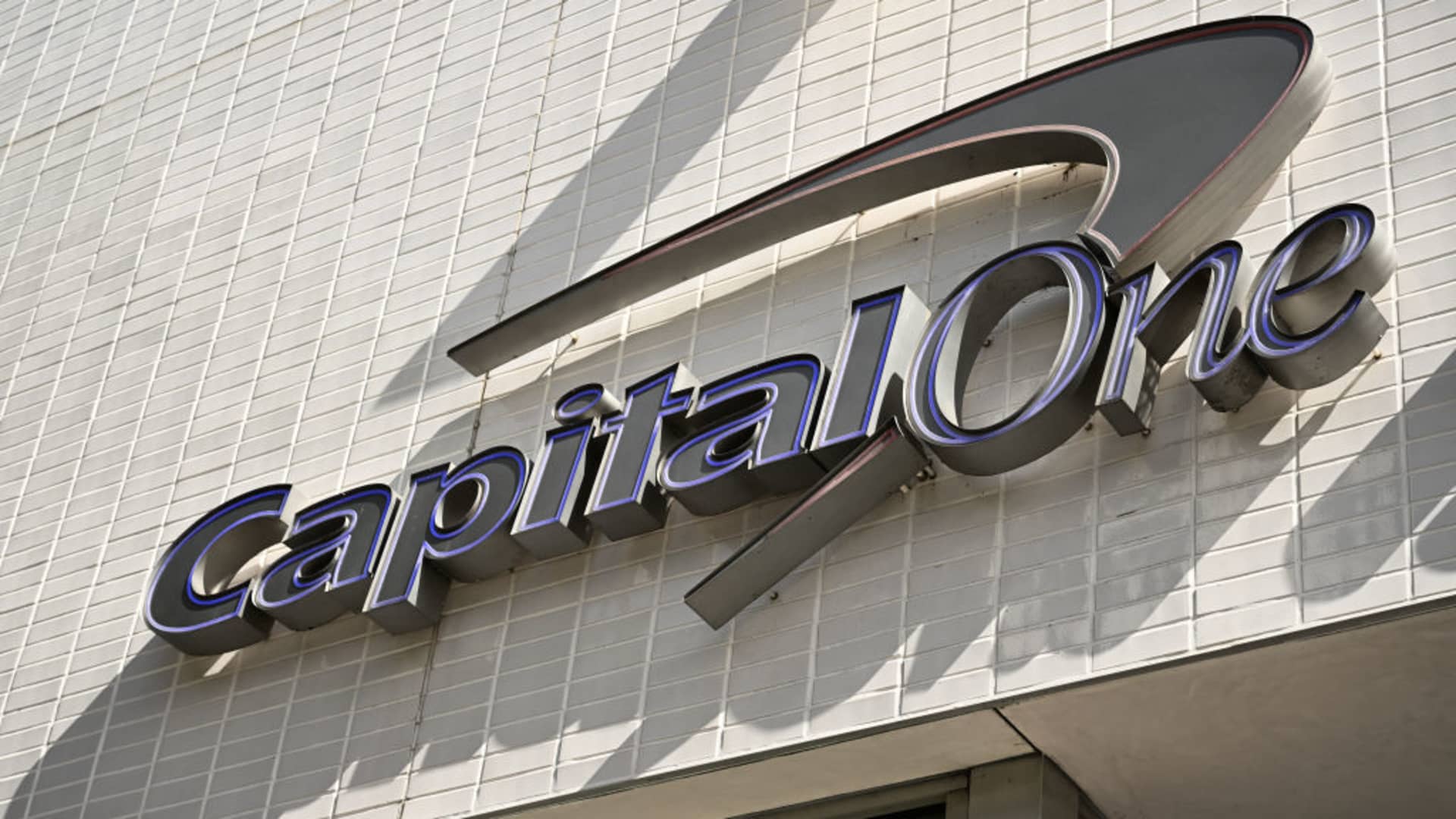Bloomberg | Bloomberg | Getty Images
The annual inflation rate was unchanged in September, coming in at 3.8%, marking the third month in a row of price rises at this level.
The data, released by the Office for National Statistics (ONS) Wednesday, shows that the financial squeeze on consumers and businesses remains high, but there are hopes this could be the peak.
The Bank of England forecast earlier this year that the consumer price index would top out at 4% — double the central bank’s target — in September, before gradually cooling into next year. Economists polled by Reuters had also expected the rate to rise to 4% in the twelve months to September.
September core inflation, which excludes more volatile energy, food, alcohol and tobacco prices, rose by an annual 3.5% in the year to September, down from 3.6% in August.
“The largest upward drivers came from petrol prices and airfares, where the fall in prices eased in comparison to last year. These were offset by lower prices for a range of recreational and cultural purchases including live events,” Grant Fitzner, chief economist at the ONS, commented Wednesday.
“The cost of food and non-alcoholic drinks also fell for the first time since May last year,” he added.
Chancellor Rachel Reeves said she was “not satisfied” with the inflation numbers and noted in a statement that “all of us in government are responsible for supporting the Bank of England (BOE) in bringing inflation down.”
November rate cut unlikely
The data is the last inflation reading before the BOE’s next meeting on Nov. 6.
The chances of a November rate cut now look slim, economists said Wednesday, with the latest data offering a “wake-up” call to markets that had expected the central bank to consider a trim next month.
They say policymakers are unlikely to cut the benchmark interest rate from 4% amid high inflation and lackluster growth. The latest data showed the British economy expanded by just 0.1% month-on-month in August.
“Inflation near 4% should serve as a wake-up call for markets, which continue to price in two more rate cuts next year, ” George Brown, senior economist at Schroders, noted Wednesday.
“High inflation is at risk of becoming entrenched in the U.K., due to a combination of disappointing productivity and sticky wage growth. We expect the Bank of England will keep interest rates on hold until the end of 2026 and we wouldn’t rule out its next rate move being upward,” he said.
Suren Thiru, ICAEW economics director, agreed that “despite softer than expected inflation, the chances of a November rate cut are hanging by a thread, particularly as rate-setters will likely want to analyse the inflationary impact of any measures announced in the Budget before relaxing policy again,” he said in emailed comments.
The BOE’s Monetary Policy Committee (MPC) will certainly be cautious about meddling with interest rates ahead of the government’s Autumn Budget on Nov. 26, in which Finance Minister Rachel Reeves could announce tax rises as well as spending cuts, which could be disinflationary.

Reeves has also signaled she would take “targeted action” to deal with cost-of-living challenges, and there has been speculation she could cut the rate of VAT charged on energy, a move which could also ease price pressures.
Any such targeted budget measures will have important implications for the inflation outlook, according to Sanjay Raja, Deutsche Bank’s chief U.K. economist.
“News reports around disinflationary measures have gathered momentum. We will also be paying close attention to any announcement on VAT changes alongside fuel duty changes — both of which could have material implications for our near-term forecasts,” Raja said in emailed comments.
“For now, we see CPI tracking at 3.4% year-on-year before slowing to 2.6% year-on-year in 2026. We expect CPI to land around target [2%] in 2027,” Raja added.















Leave a Reply